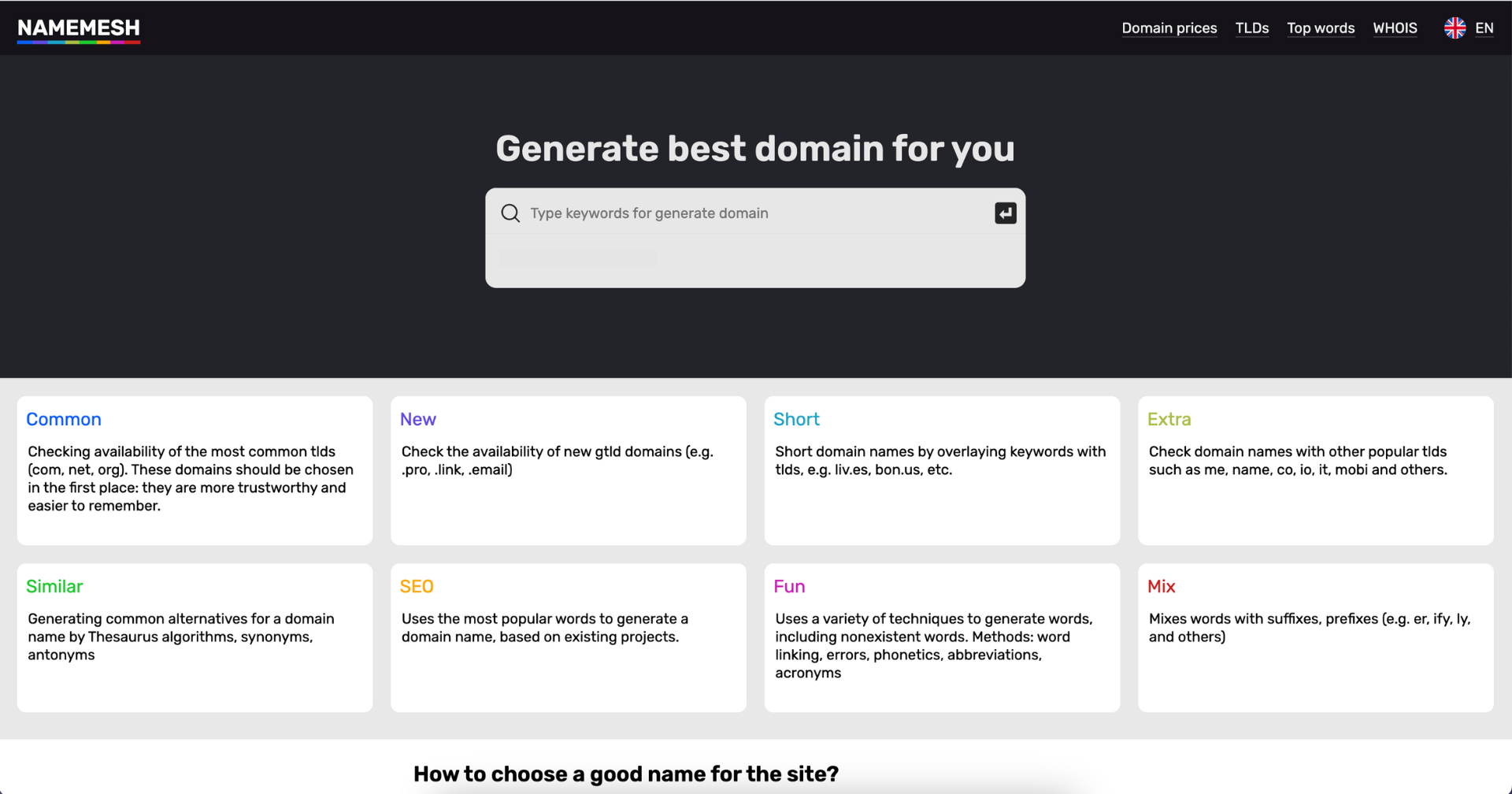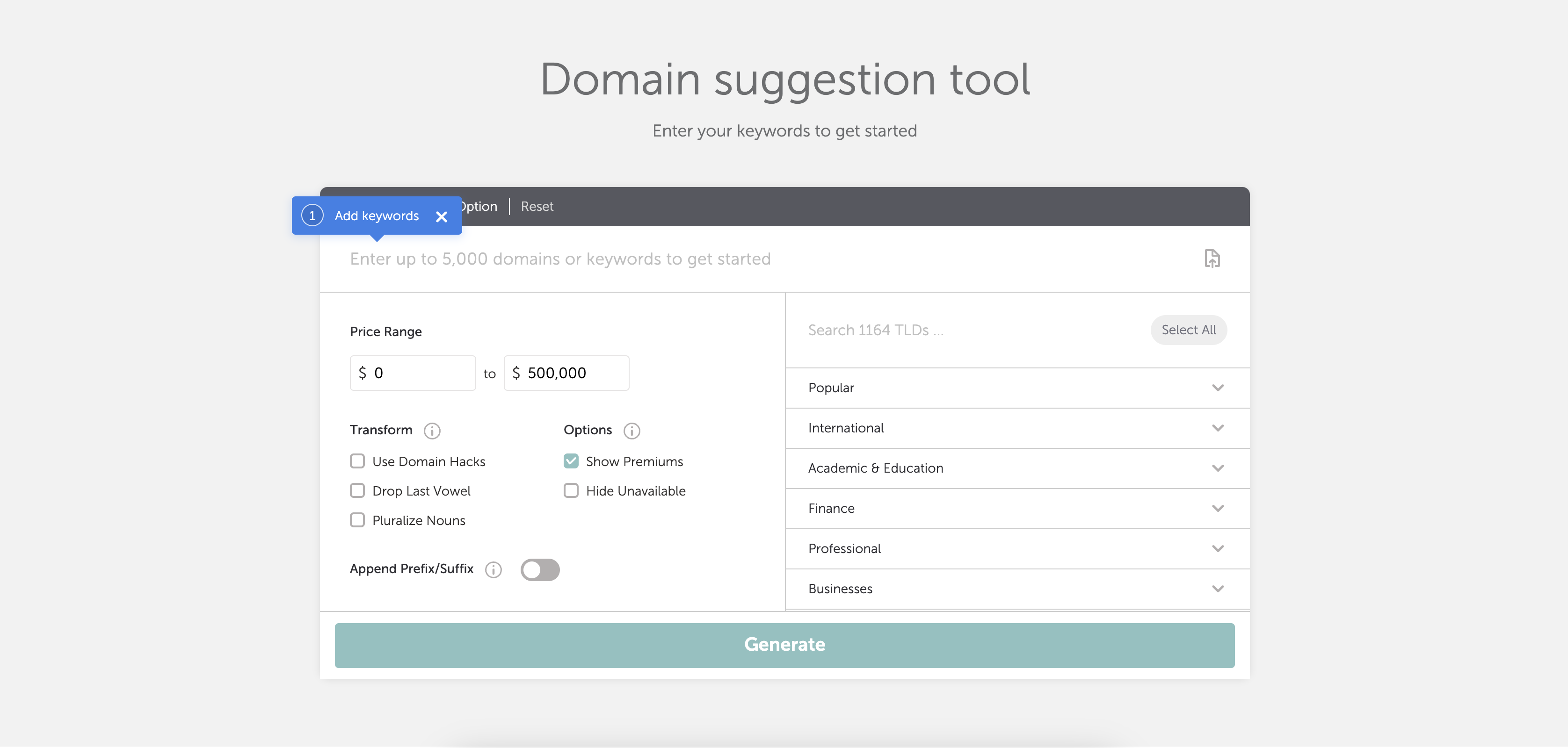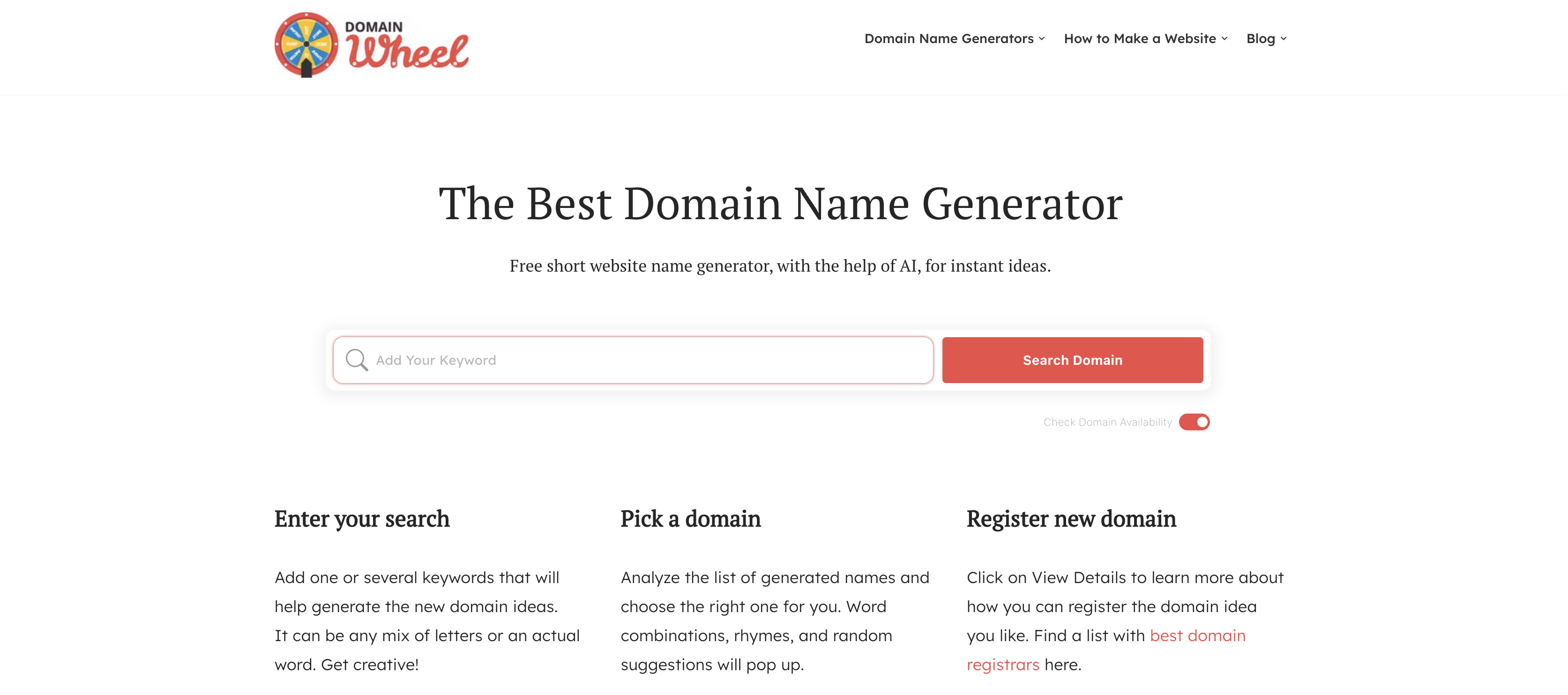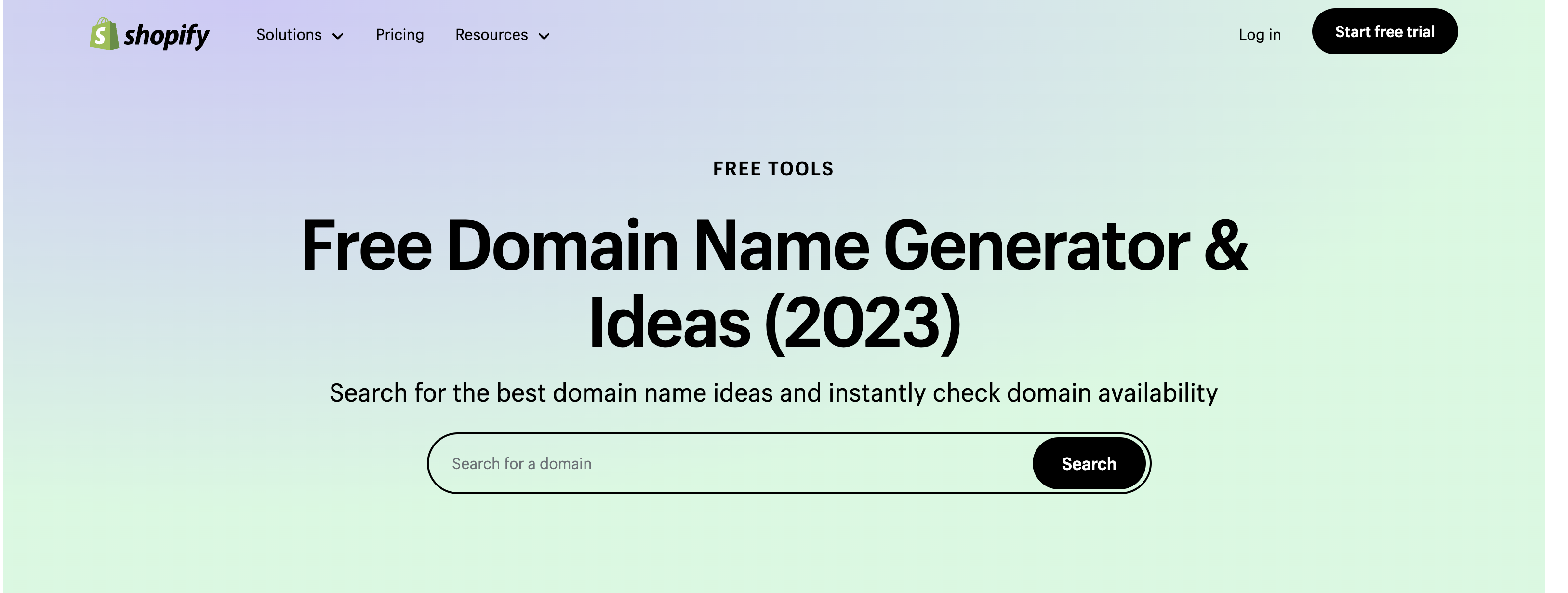As online shopping grows, businesses must choose their domain names carefully to attract a wide audience and encourage engagement with their brands. Your domain is the digital equivalent of a local retailer’s storefront; it’s where customers come to find you and interact with your products.
But not all domain names are created equal, as some are more effective than others. This article will discuss eight of the latest domain name trends that eCommerce businesses should consider in the coming year.
What Is a Domain Name?
A domain name is an online address individuals type into their browsers to access a website. The domain name system (DNS) provides the basic framework for browsing the web.
A domain name comprises two major parts: the top-level domain (domain extension) and the domain name itself. For example, in “Email.icu,” “.icu” is the domain extension, and “Email” is the domain name. A domain extension or top-level domain is an addition to the domain name that identifies the kind of business or website to which it belongs.
A domain name must be registered with a domain registrar to prevent unauthorized usage. When an eCommerce business registers a domain name, it becomes theirs for a set amount of time, typically one to ten years. If you want to keep using the domain name after the set period, you must renew your registration.
An eCommerce business domain name communicates information about the services it offers. Some factors to consider when picking a domain name include your brand name, SEO, and availability. Businesses have to ensure that the option they select will help boost their domain authority and organic traffic.
How Does a Domain Name Affect SEO?
A domain name can affect a business’s search engine optimization in several ways. The extension, keywords, and length of a domain name are essential elements of an SEO strategy. A reputable, narrowly focused, straightforward domain name will draw more attention from users and search engines.
You might assume domain names are less significant than other SEO elements, but take FreeShoppingForLife.tld as an example; this domain name does not seem trustworthy. Based on its name alone, consumers may think of this domain (and the business) as a scam. Both search engines and customers are very aware of this, as they place great importance on credibility and trust.
A domain name also affects how relevant your website is to algorithms that search engines use. Most eCommerce businesses prioritize search engine optimization as traditional marketing methods are less effective nowadays. For example, a recent study of local medical clinics found that traditional marketing avenues resulted in 50% fewer interactions with patients than digital marketing methods, highlighting the importance of an online presence. For this reason, including keywords relevant to your industry or niche in your domain name is essential.
Your website’s click-through rate may also be impacted by the domain name you use. People are more likely to click on your domain name if it is memorable, relevant, and easy to spell. This can improve your website’s CTR, which, in turn, improves its SEO.

8 Domain Name Trends eCommerce Businesses Should Watch in 2023
In today’s competitive eCommerce world, having a strong online presence is critical for success. Here are eight SEO-friendly domain name trends that eCommerce businesses should watch in 2023.
1. Short and Memorable Domain Names
Choosing a short and memorable domain name that is simple to spell, remember, and pronounce is one of the most important domain name strategies for eCommerce sites. Customers will remember an eCommerce site address if it is brief and distinctive and will be more likely to share it with others.
According to studies by Gaebler, the top 10,000 websites have domain names with six to eight characters. However, short new domain names are not always available, as many keyword-efficient URLs have already been registered. That’s where new domain extensions such as .icu, .cyou and .bond come in. That’s where new domain extensions such as .icu, .cyou, and .bond come in. These domain extensions are relatively new, making it easy to find your exact match domain name with them.
2. Including Brand Name
The best way an eCommerce site can customize a domain name is to include its brand name in its domain name. This helps develop brand recognition and recall, making it easier for clients to remember the eCommerce website address and find the company online. Hudsonent.icu, for example, is a domain name that includes the brand name. Including a customized domain name is easier than you may have expected. Most website builders will allow you to connect customized domain names to your site so long as you go with a paid subscription plan, for instance.
A catchy, memorable, and unique domain name that reflects the brand’s identity and values is called a brandable domain name. This trend can help eCommerce businesses stand out in a crowded niche and help buyers remember the business URL.
3. Domain Hacks
A unique domain name that skillfully incorporates the domain extension into the primary name is known as a domain hack. It is a trend that has been around for a while, but it is still gaining traction among eCommerce business owners.
One of the most well-known domain hacks is “we.cyou,” which uses the “.cyou” domain extension to create a memorable name, “We See You.” Finding the appropriate domain name that properly combines the domain extension might take a lot of work. However, with some creative thinking, eCommerce business owners can come up with a catchy domain hack.
4. Localized Domain Names
Local SEO is becoming more crucial for eCommerce businesses that operate in certain geographic areas. Selecting a localized domain name that includes a country, city, or region might help a website appear more prominently in local search results.
Localized domain names can also assist eCommerce enterprises in targeting customers in a certain region and increasing sales. Plus, they can aid in the development of trust with customers in certain geographic locations.
Domain extensions like .icu, .bond, and .cyou give you the freedom to create a unique online presence that can be local, global, or anywhere in between! Unlike traditional domain extensions that tie you down to a specific geographic region, these new extensions are free from any such constraints. So, if your eCommerce business is looking to reach customers across the globe or trying to connect within your local community, these domain extensions offer a world of possibilities!
5. Keyword Rich Domain
In the old days, eCommerce sites selected keyword-rich domain names to boost search engine rankings. But Google has made various changes in recent years that have deprioritized eCommerce sites with keyword-rich domain names that aren’t otherwise high quality. Keyword stuffing is perceived as spammy by the search engine and can harm your SEO efforts.
If you can incorporate a key phrase that makes your domain name unique and brand-friendly, do so, but avoid using an exact-match domain (EMD). An example of an EMD is BestDogFood.tld. However, if you can include one or two keywords that help make it obvious what your business does while keeping your domain name catchy, unique, and brand-friendly, go for it.
6. Expired Domains
Purchasing expired domains is another trend that eCommerce businesses should consider when choosing a domain name. An expired domain is a previously registered but no longer active domain name.
These domains are generally less expensive to purchase and extend than new ones and can be a great way to cut costs for new businesses. With lots of recurring costs for things like hosting, premium themes, subscriptions, and marketing fees, purchasing an expired domain can help manage your budget.
When selecting an expired domain name, there are several factors to take into account. You should check out its previous search engine rankings, backlink profile, and domain age. An eCommerce domain name with a healthy backlink profile and a high search engine ranking can provide considerable SEO benefits, including improving your business’s rankings.
7. New Domain Extensions
The most popular and reputable domain names for eCommerce businesses use the .com top-level domain. However, several new domain extension can help eCommerce businesses stand out in a crowded sector. Some popular domain extension for eCommerce websites include “.icu,” “.cyou,” and “.bond.”
A domain extension related to the eCommerce business niche can aid in brand recognition and search engine optimization. For example, if your eCommerce site sells pet grooming items, a domain name like www.yourpet.icu can improve SEO and make it easier for clients to find the website.
8. Voice Search Optimization
The use of voice search is becoming increasingly prevalent, so eCommerce businesses must improve and optimize their domain names for voice search. Since voice searches sound more conversational than text-based searches, you should pick a domain name that is simple to say and spell.
Best Domain Name Generators
Domain name generators are tools that can assist eCommerce business owners in coming up with creative domain names. They will present smart ideas that you can use to brainstorm for good domain names using the keywords and information you provide. The best ULR generators also detect whether a domain name you want is available, and some of these tools even link the names to a reliable domain registrar.
The best domain name generators for eCommerce websites include:
1. NameMesh
NameMesh is an extensive domain name generator. It offers a search box for entering keywords and filters for different domain extension.
NameMesh domain name suggestions are divided into various categories. The most relevant domain names to the keyphrases you input will be highlighted in green directly below the search box. The domain name generator will also provide lists of premium domain names that are more expensive than regular ones.

2. Namecheap
Namecheap is one of the most popular domain name generators. It offers various features, such as search filters, and gives individuals complete control over the process of creating domain name ideas.
Similarly to NameMesh, you only need to input a few keywords and select the price range you want. Then choose the transform option to create variations and the domain extension top-level domain extensions you want.

3. DomainWheel
DomainWheel has a simple and user-friendly interface. This domain name generator will prompt you to enter key phrases describing your brand, providing you with a list of prospective domain names to register based on your input. It also allows you to exclude domain extension you do not want to view.
This domain name generator uses an AI-guided tool to produce smart results and suggestions that could help you brainstorm. It will also suggest domain names that rhyme with your keywords and other random suggestions.

4. Shopify Domain Name Generator
Shopify is a popular platform that makes setting up an eCommerce site easy. It also has a domain name generator to help business owners find and create unique business domain names.
This domain name generator only shows the availability of a domain name across several extensions, so it’s best to use it after you have already narrowed down a few ideas for your website.

Conclusion
It is important to select the right domain name so you can establish a strong online presence. Some crucial factors to consider include brandable domain names and avoiding keyword stuffing. Businesses should prioritize mobile devices and optimize their domain names for local and voice searches.
By following these trends, you can improve your eCommerce website’s SEO and gain a competitive advantage in your sector.
Author Bio
 Nahla Davies is a software developer and tech writer. Before devoting her work full-time to technical writing, she managed—among other intriguing things—to serve as a lead programmer at an Inc. 5,000 experiential branding organization whose clients include Samsung, Time Warner, Netflix, and Sony.
Nahla Davies is a software developer and tech writer. Before devoting her work full-time to technical writing, she managed—among other intriguing things—to serve as a lead programmer at an Inc. 5,000 experiential branding organization whose clients include Samsung, Time Warner, Netflix, and Sony.
